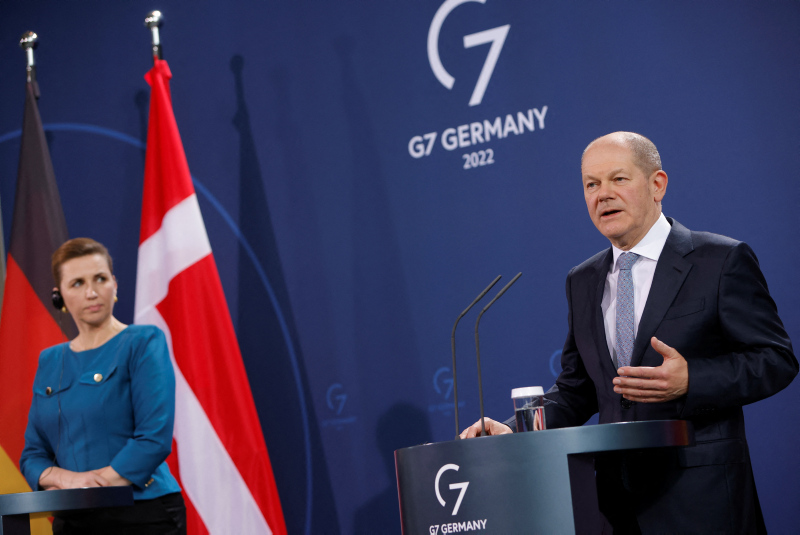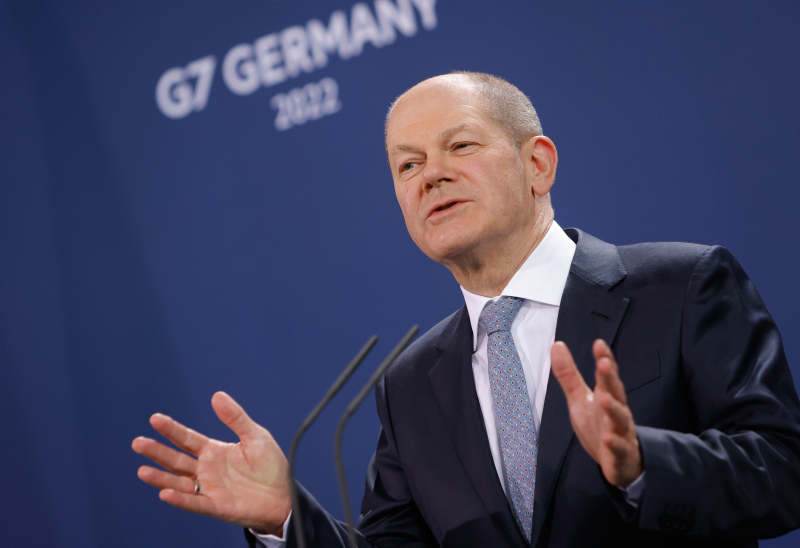German Chancellor Olaf Scholz said Wednesday a recent flurry of diplomatic efforts marked "progress" in helping to stop Russia from invading Ukraine, as he voiced confidence that war on the continent could be averted.
"The task is that we ensure the security in Europe, and I believe that that will be achieved," he told journalists at a joint press conference with Danish Prime Minister Mette Frederiksen.

Olaf Scholz said that he would continue to pursue a "dual approach" in the Ukraine conflict, combining dialogue with warnings to Russia.
The security situation is "very difficult," Chancellor Scholz said, but he added that compared to some weeks back, "much has happened," underlining recent talks undertaken by Western allies with Russia on various levels.
"That is progress," said Scholz, who will himself head to Kyiv and Moscow next week for separate meetings with Ukraine and Russia's leaders.
He underlined that Moscow has understood that the West is united in its determination to impose tough sanctions if Russia invades Ukraine, but he said the situation remains tense.

"It is too early to say the problems are solved. They are so serious and will remain for some time yet, so they deserve our attention," Scholz said, adding that "The hope is that through this intensity and through this double strategy of clear unity and announcement of hard sanctions should there be military aggression, and at the same time, discussion formats," that tensions could be defused.
The German leader, who has been under fire over accusations that he has dithered over the crisis, stressed he was in agreement with allies including the United States on possible sanctions that could be imposed.
Scholz's failure to pronounce the words "Nord Stream 2" during his trip to Washington did not go unnoticed, with critics questioning how committed he was to ditching the gas pipeline meant to transport Russian gas to Europe should Moscow take action against Ukraine.
On Wednesday, he again shied away from mentioning the pipeline directly, arguing that together with allies, "we have decided not to publish the entire catalogue (of sanctions) and I think that also makes sense because we can gain a little bit of power" by remaining vague.